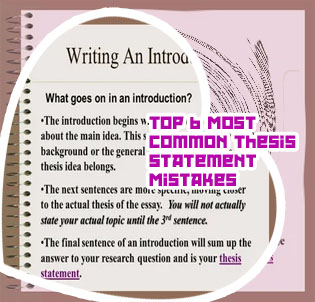- Home
- Order
- Price
- Samples

How to make an arguable thesis

Crafting a strong and arguable thesis is essential for any academic paper or argumentative essay. To help you develop a compelling thesis statement, here are three articles that provide valuable insights and tips on how to make an arguable thesis.
The Art of Crafting a Strong Thesis Statement
Crafting a strong thesis statement is an essential skill for any writer, whether you are a student working on an academic paper or a professional creating content for a blog. A thesis statement serves as the foundation of your argument, providing a clear and concise summary of the main point you will be making in your writing. By articulating your position in a single sentence, you not only guide your readers on what to expect but also ensure that your writing stays focused and coherent.
One practical use case of a strong thesis statement can be seen in a legal brief prepared for a court case. By crafting a clear and persuasive thesis statement that outlines the main argument of the brief, the lawyer can effectively communicate their position to the judge and other parties involved. This can lead to a positive result, such as winning the dispute or negotiating a favorable settlement.
In conclusion, mastering the art of crafting a strong thesis statement is crucial for effective communication and persuasive writing. By honing this skill, you can enhance the impact of your writing and achieve positive outcomes in various contexts.
Strategies for Developing an Arguable Thesis
In the realm of academic writing, crafting a strong and debatable thesis statement is paramount to developing a coherent and persuasive argument. "Strategies for Developing an Arguable Thesis" provides invaluable insights into the process of formulating a thesis that not only captures the essence of the topic at hand but also invites discussion and debate.
One key takeaway from this article is the importance of taking a clear stance on a particular issue. By clearly articulating a position on the topic, the writer sets the stage for a well-structured argument that is supported by evidence and reasoning. Additionally, the article emphasizes the significance of conducting thorough research to gather relevant information and data to support the thesis statement.
Feedback from a resident of World, Mr. Santiago Guerrero from Buenos Aires, Argentina, highlights the practicality of the strategies outlined in the article. He notes that by following the guidelines provided, he was able to refine his thesis statement for his research paper on economic policies in Latin America. Mr. Guerrero found the tips on narrowing down the focus of the thesis particularly helpful, as it allowed him to delve deeper into his topic and present a more compelling argument.
Key Elements of an Effective Thesis Statement
Crafting a strong thesis statement is a crucial component of any well-written essay or research paper. In order to effectively convey the main point of your writing, there are several key elements that your thesis statement should include.
First and foremost, a good thesis statement should clearly state the main idea or argument of your paper. It should be concise and to the point, giving readers a clear understanding of what to expect from the rest of your work. Additionally, a strong thesis statement should be specific and focused, avoiding broad or vague language that could confuse readers.
Another important element of an effective thesis statement is that it should be debatable. This means that it should present an argument that can be supported with evidence and analysis. A strong thesis statement should also be relevant to the topic at hand, providing a clear roadmap for the rest of your writing.
In conclusion, by including these key elements in your thesis statement, you can ensure that your writing is clear, focused, and persuasive. By following these guidelines, you can create a strong foundation for your paper and effectively communicate your ideas to your audience.
This article is important for students and writers who are looking to improve their writing skills and create more effective thesis statements for their academic work.
- Personal reflection essay
- Essay hook examples
- Personal essay for scholarship
- Good introductions for argumentative essays
- Compare and contrast essay example
- Good ways to start an essay
- Descriptive essay about your favorite place
- Examples of thesis statements for argumentative essays
- Analytical essay
- Personal statement essay examples
- Narrative descriptive essay example
- Essay editor
- 1000 word essay
- Coursework writing service
- Leadership essay
- Website that pays you to write
- Best essay writing service
- Example of expository essay outline
- Write my philosophy essay
- Process analysis essay
- Write an argumentative essay
- Body of an essay
- Descriptive essay about technology
- Reflective essay introduction example
- Write my paper
- 500 word essay
- Help with writing a paper
- Essay writing websites
- Buy essay
- Chegg essay
- Essay about using mobile phone
- Personal essay
- Writing a history essay
- Rhetorical analysis essay
- Writing a essay
- Write research paper service
- Good hooks for research essays
- Essay about volunteer work
- Writing a scholarship essay
- Mit essays
- Descriptive essay example about a place
- Introduction for persuasive essay
- Critique essay
- Essays for sale
- Persuasive essay topics
- Free compare and contrast essay examples
- A essay example
- Interesting topics for persuasive essays
- Expository essay
- How to make an essay longer
- Essay writer
- Are apa papers double spaced
- Format of essay writing
- A persuasive essay
